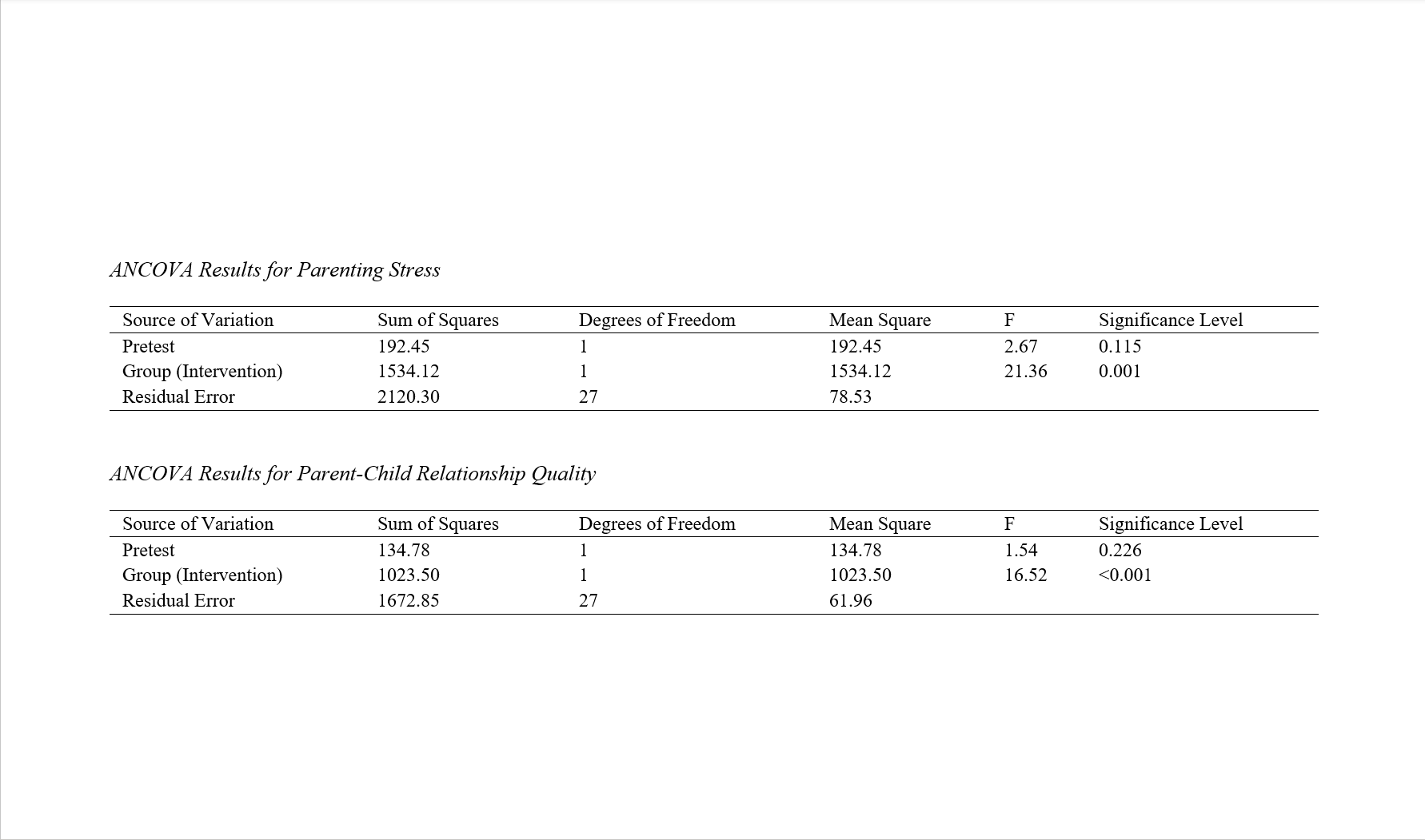The Effectiveness of Self-Compassion Therapy on Reducing Parenting Stress and Improving Parent-Child Relationship Quality
Keywords:
Parenting stress, Parent-child relationship, Self-compassion therapy, Relationship qualityAbstract
Objective: The aim of this study was to investigate the effectiveness of self-compassion therapy in reducing parenting stress and improving the quality of parent-child relationships.
Methods and Materials: This research was conducted using a quasi-experimental design with a pretest-posttest control group. The study population included mothers who were experiencing parenting stress and difficulties in their relationships with their children. A total of 30 parents were randomly assigned to either the experimental or control group. The research instruments included the Parenting Stress Index-Short Form (PSI-SF) and the Parent-Child Relationship Quality Questionnaire (PCRQ). The experimental group underwent 8 sessions of self-compassion therapy. Data were analyzed using analysis of covariance (ANCOVA).
Findings: The results showed that self-compassion therapy significantly reduced parenting stress and improved the quality of parent-child relationships in the experimental group compared to the control group (p < 0.05). Parents who practiced this approach demonstrated greater ability to manage parenting stress and improve their interactions with their children.
Conclusion: Overall, this study demonstrated that self-compassion therapy can be used as an effective intervention for reducing parental stress and improving the quality of relationships with children.
Downloads

Downloads
Additional Files
Published
Submitted
Revised
Accepted
Issue
Section
License
Copyright (c) 2024 Fatemesadat Mirshafiei (Corresponding Author)

This work is licensed under a Creative Commons Attribution-NonCommercial 4.0 International License.
















